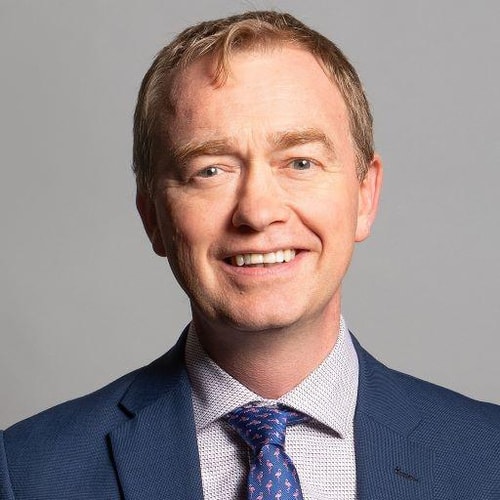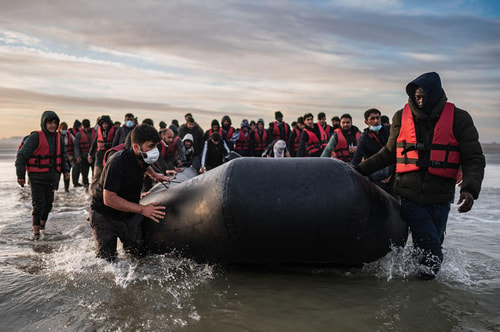The House of Commons spent two days going through 98 pages of proposed amendments to the bill, but in the end only government-led amendments were accepted. What concerns were raised during the debate and what issues will re-emerge during deliberation in the House of Lords next year?
On Tuesday, 7 and Wednesday, 8 December, MPs gave final speeches and contributions to the bill. Listening to the debates, what was clear was a cross-party effort to raise different concerns and propose amendments that would significantly improve the bill and its treatment to those most in need and seeking refuge in the UK. Below are a few examples:
- New clause 18 proposed by Bell Riberiro-Addy MP (Labour) asked the government to reduce immigration fees from child dependents and to cease payment completely once they reached 21 if the fee is not paid in full.
- New clause 29 and 31 both proposed by Tim Loughton MP (Conservative) sought to give children and young people who have lived in the UK for over five years (currently 10 years) automatic British citizenship based on the fact they have grown up in the UK.
- New clause 12 proposed by Apsana Begum MP (Labour) would provide those with a UK residence permit access to apply for statutory funding (that is, benefits, housing assistance and universal credits).
- New Clause 47 proposed by Iain Duncan MP (Conservative) sought to improve statutory support for victims of modern slavery in England and Wales for a further 12 months.
During the government’s rounding up statements, Rachel Maclean MP, the parliamentary under-secretary for the Home Office committed to Iain Duncan Smith’s amendment and assured the House that the government would update its guidance to statutory services accordingly. But this was the only concession made by the government.
Two amendments the Evangelical Alliance supported
Back in November this year we produced a written submission to the public bill committee outlining several concerns with the bill. However, in the lead up to last week’s debate, we chose to focus our attention on two amendments.
The first being amendment 9 proposed by David Davis MP (Conservative) and co-signed by four other Conservatives: Andrew Mitchell, Caroline Noakes, Simon Hoare and Pauline Latham MP. This amendment sought to remove paragraphs 1 and 2 from Schedule 3 which gave the government powers to send those seeking asylum to other countries while their applications were being processed. This is known as ‘offshoring’ and is heavily criticised by the sector for its inflating costs, degrading treatment of those who have already experienced significant trauma and the subpar accommodation facilitates for individuals.
The second was amendment 8 proposed by Alistair Carmichael MP (Liberal Democrat), co-signed by Tim Farron MP and supported by 25 other MPs. This amendment sought to remove the most contentious clause in the bill. Clause 11 would give the secretary of state and the government powers to treat those seeking asylum differently based on how they enter the UK. Aside from clause 11 breaching international human rights law, we believe the creation of a two-tier asylum system is inhumane and is hostile towards those in need of our care and support, particularly those who have fled religious persecution and conflict.
The government rejected my amendment to eradicate the part of the bill which allows the government to process refugees' asylum claims differently depending on how they reached the UK. They're dividing refugees between those they think are “deserving” and “undeserving”. That is not just morally shameful but against international law. It undermines Britain’s international standing and weakens our position on a range of issues. The bill is a charter for the people traffickers, and the only answer is safe routes.

Concerns the House of Lords needs to address
The bill will receive its second reading on Wednesday, 5 January 2022. Although disappointed by the vote last week, the Lords have an opportunity to establish a new asylum and refugee system that protects those most vulnerable from exploitation. We will be advocating for two things in the new year:
- Encouraging diplomacy between the UK Government and France. Channel crossings are increasingly a political and diplomacy crisis between the UK and French Government. While governments bicker over responsibility, lives will continue to be at risk. Last month, 27 individuals, including a mother and her three children, died while crossing the channel. Small boat crossings will continue, and lives will continue to be placed at greater risk, without a diplomatic solution between governments.
- Putting pressure on the government to establish safe and legal routes for those fleeing conflict and persecution. The solution to reducing small boat crossings is to increase and establish safe and legal routes.
Three months on from the fall of Afghanistan, the Afghan Citizen Resettlement Scheme is still yet to open, its criteria is restricted to those Afghans prepared to stay in Afghanistan or the region, and unaccompanied children are not guaranteed resettlement in the UK. The UK Resettlement Scheme has not lived up to expectations either, resettling only 775 people out of its 5,000 yearly commitment. Without safe and legal routes, those at the greatest risk and in the most need will resort to the most dangerous routes.
"It undermines Britain’s international standing and weakens our position on a range of issues. The bill is a charter for the people traffickers, and the only answer is safe routes."



